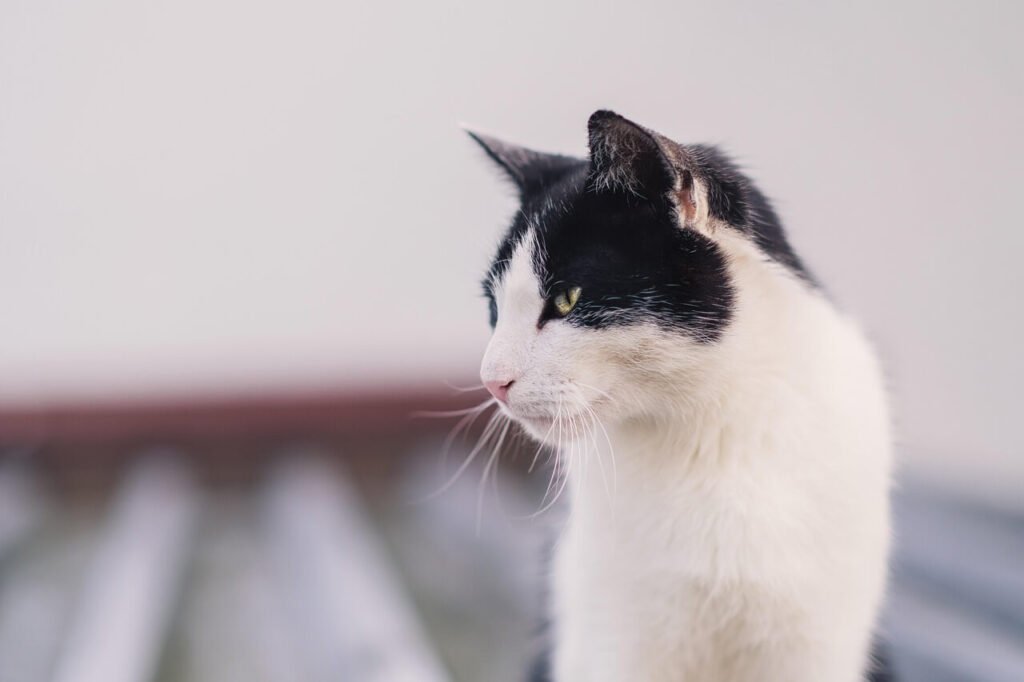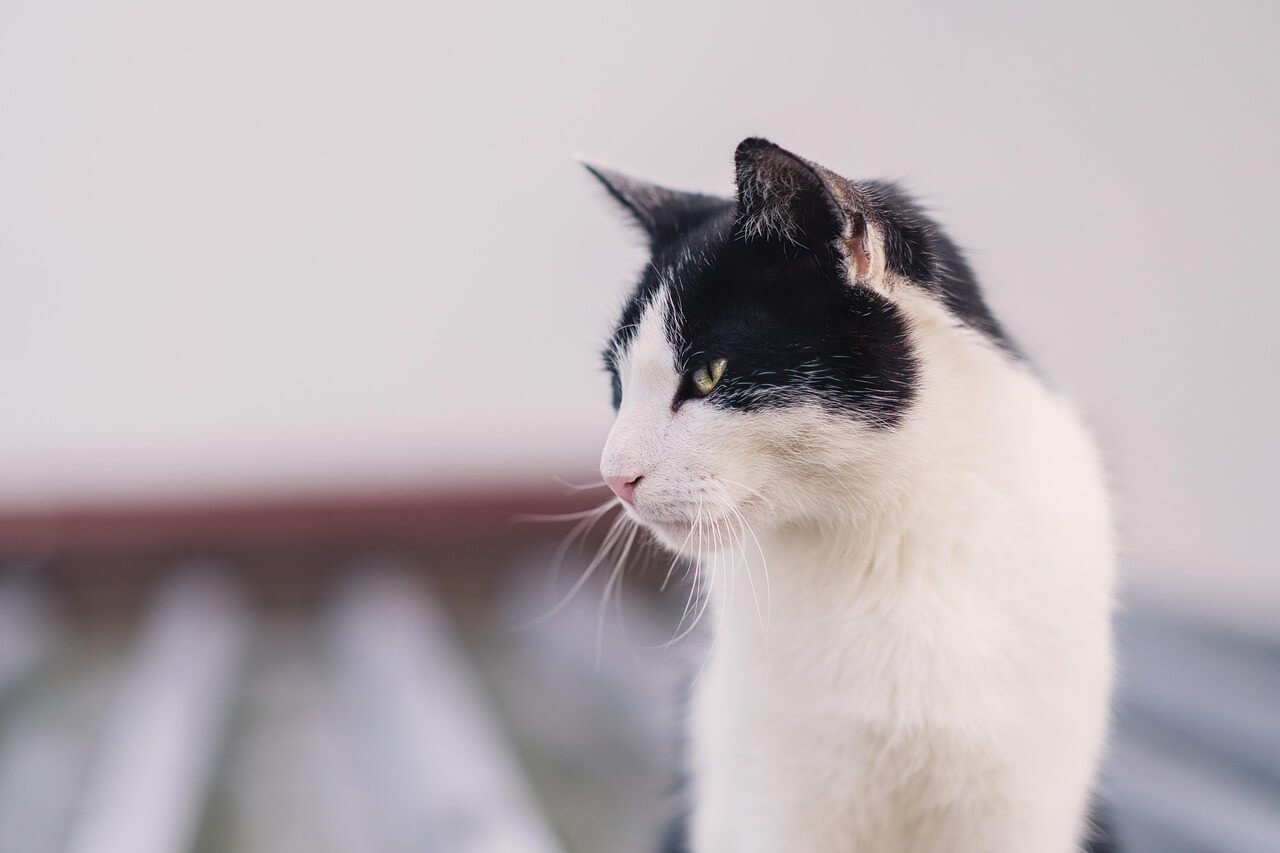Why Is My Cat So Gentle with Me? Understanding Their Affectionate Nature
If you’ve ever found yourself marveling at how gentle your cat is with you, you’re not alone. Many cat owners are touched by the tender way their feline companions interact with them, whether it’s a soft paw tap, a gentle headbutt, or a quiet purr during cuddles. But what makes your cat so affectionate and considerate? Cats are often misunderstood as aloof or independent, but their gentleness can reveal deep bonds, trust, and even gratitude. In this blog post, we’ll explore the reasons behind your cat’s gentle behavior, the science of feline affection, and how you can nurture this special connection. Let’s dive into the heartwarming world of your cat’s loving gestures.
Reasons Your Cat May Be So Gentle with You
Cats express their emotions in subtle yet meaningful ways, and their gentle behavior often stems from a combination of instinct, personality, and the bond they share with you. Here are some common reasons why your cat might be so tender:
They Trust You Completely
A gentle demeanor is a sign that your cat feels safe and secure in your presence, trusting you as part of their family.They See You as a Caregiver
Cats often associate their humans with food, warmth, and comfort, leading them to treat you with affectionate gentleness.They’re Showing Affection
Headbutts, slow blinks, and soft touches are all ways cats express love and strengthen their bond with you.Their Personality Naturally Leans Toward Gentleness
Some cats are simply born with calmer, more docile personalities, making them naturally inclined to be gentle.They’re Grateful for Your Care
If you’ve provided your cat with a loving home, regular meals, and attention, they may show their gratitude through gentle interactions.
Your cat’s gentle behavior is a testament to the strong connection you share. It’s their way of saying, “I feel safe with you, and I care about you.”
Signs Your Cat Feels Comfortable and Safe with You
When a cat is gentle with you, it’s often a sign that they feel deeply comfortable in your company. Here are some behaviors that indicate your cat trusts and loves you:
Slow Blinking at You
Slow blinks are a cat’s way of showing affection and trust—it’s like sending you a kitty kiss!Kneading on Your Lap
Kneading is a behavior kittens use to stimulate milk flow, and adult cats do it when they feel content and safe.Purring While Being Held
Purring is a soothing sound that cats make when they’re happy, relaxed, and feeling loved.Rubbing Against You
When your cat rubs their face or body against you, they’re marking you as part of their territory—a gesture of trust.Sleeping Near You
Cats only sleep near people they trust completely, so if your cat curls up beside you, it’s a huge compliment.
These signs of affection highlight the depth of your bond with your cat. Cherish these moments, as they’re proof of the love and trust you’ve built together.
Check this guide 👉Understanding Why Cats Swish Their Tails: Best 7 Expert Tips
Check this guide 👉Why Do Cats Leave Home? Best 7 Expert Tips!
Check this guide 👉Why Do Cats Like Certain People? Best 7 Behavior Tips!

Why Is My Cat So Gentle? | How to Strengthen Your Bond |
|---|---|
They trust you completely | Spend quality time together daily |
They see you as a caregiver | Provide consistent care and attention |
They’re expressing affection | Respond to their cues and engage with them |
Their personality leans toward calmness | Respect their boundaries and preferences |
They’re grateful for your care | Offer treats, toys, and positive reinforcement |
How to Encourage and Appreciate Your Cat’s Gentle Behavior
If your cat is already gentle with you, there are ways to nurture this behavior and deepen your bond. Here are some tips to encourage and appreciate your cat’s affectionate nature:
Reward Gentle Gestures
Offer treats or praise when your cat interacts with you softly, reinforcing their positive behavior.Provide a Safe Environment
Create a stress-free space where your cat feels secure, allowing their gentle side to shine.Spend Quality Time Together
Engage in play, grooming, or simply sitting together to strengthen your connection.Respect Their Boundaries
Even gentle cats need personal space—learn to recognize when they want alone time.Use Positive Reinforcement
Encourage good behavior with rewards like toys or verbal praise, building trust and affection.
By fostering a supportive and loving environment, you can ensure your cat continues to feel comfortable and secure with you. The more you invest in your relationship, the more gentle and affectionate they’ll become.
Common Misconceptions About Cats Being Aloof
Despite their reputation for being independent, cats are capable of forming deep, loving bonds with their humans. Here are some misconceptions about cats and their affectionate nature:
Myth: Cats Are Less Affectionate Than Dogs
In reality, cats express love differently but just as deeply, often through subtle gestures like slow blinks or gentle nudges.Myth: Cats Are Aloof by Nature
Many cats are social and loving—they just communicate affection in quieter, more reserved ways.Myth: Cats Only Show Affection When They Want Food
While cats may seek attention around mealtime, their affection often extends far beyond hunger.Myth: Cats Don’t Form Bonds with Humans
Studies show that cats form strong attachments to their caregivers, similar to dogs and even children.Myth: A Gentle Cat Is Rare
Many cats are naturally gentle, especially when raised in a loving and supportive environment.
Understanding these truths helps dispel stereotypes and highlights the depth of your cat’s emotional capacity. Their gentleness is a reflection of the love they feel for you.
Fun Facts About Gentle Cats and Their Behavior
Cats are fascinating creatures, and their gentle behavior often hides intriguing secrets about their nature. Here are some fun facts that shed light on why your cat might be so tender with you:
Cats Have a Unique Way of Communicating Love
Slow blinks are a feline “I love you,” signaling trust and affection when directed at their humans.Purring Has Healing Properties
The vibrations from a cat’s purr can promote healing in bones and tissues, benefiting both the cat and their human companion.Headbutting Is a Form of Bonding
When your cat gently bumps their head against you, they’re marking you as part of their family group.Kneading Dates Back to Kittenhood
This gentle behavior stems from when kittens kneaded their mother’s belly to stimulate milk flow—it’s a sign of comfort and nostalgia.Cats Learn Gentleness Through Observation
Kittens raised in calm environments often mimic the gentle behaviors of their caregivers or littermates.
These fun facts highlight the depth and complexity of your cat’s gentle actions. They remind us that even the smallest gestures carry profound meaning in the feline world.
Ways to Respond to Your Cat’s Gentle Gestures
When your cat shows you affection through gentle behavior, responding appropriately can strengthen your bond even further. Here are some ways to reciprocate their love:
Offer Gentle Petting
Stroke your cat softly on areas they enjoy, like behind the ears or along their back, to show you appreciate their tenderness.Use Positive Verbal Cues
Speak to your cat in a calm, soothing voice to reinforce their gentle behavior and make them feel loved.Provide Safe Spaces for Interaction
Create cozy spots where your cat feels comfortable engaging with you without fear of overstimulation.Respect Their Personal Space
Even the gentlest cats need time to themselves—give them room when they retreat to recharge.Engage in Play That Encourages Calmness
Choose toys that allow for gentle play, like feather wands or soft plush mice, to match their demeanor.
By responding thoughtfully to your cat’s gestures, you can deepen your connection and create an environment where their gentle nature thrives.
How to Handle Moments When Your Cat Isn’t So Gentle
While many cats are naturally gentle, there may be times when they display less-than-tender behavior. Understanding these moments can help you address them effectively:
Play Aggression Is Common
Some cats may bite or scratch during play—it’s important to redirect this energy toward appropriate toys instead of hands or feet.Overstimulation Can Lead to Sudden Changes
Gentle cats may become agitated if petted too long or in sensitive areas; watch for signs like tail flicking or flattened ears.Fear or Stress May Trigger Defensiveness
Loud noises, unfamiliar people, or changes in routine can make even the gentlest cat act out temporarily.Illness Might Cause Irritability
If your normally gentle cat becomes aggressive or withdrawn, it could indicate an underlying health issue requiring veterinary attention.Socialization Impacts Behavior
Cats who weren’t exposed to positive interactions as kittens may struggle with gentleness later in life but can improve with patience.
Recognizing these triggers allows you to address potential issues while maintaining a harmonious relationship. With understanding and care, most cats can return to their usual gentle selves.
Frequently Asked Questions About Cats Being Gentle
Why does my cat gently paw at me?
This is often a sign of affection or a way to get your attention without being aggressive.
Do all cats show affection in the same way?
No, each cat has a unique personality and may express love through different behaviors.
Can a previously aggressive cat become gentle?
Yes, with patience, trust-building, and proper care, many cats can develop a gentler demeanor over time.
Should I be concerned if my cat suddenly becomes overly gentle?
Sudden changes in behavior could indicate illness or discomfort—consult your vet if you notice anything unusual.
How can I tell if my cat trusts me?
Signs of trust include slow blinking, kneading, purring, and sleeping near you.
Celebrating the Gentle Love of Your Feline Friend
The gentle behavior your cat shows you is a beautiful expression of trust, affection, and gratitude. Whether it’s a soft nuzzle, a quiet purr, or a delicate paw tap, these small gestures carry immense meaning. By understanding the reasons behind your cat’s tenderness and nurturing your bond, you can create a relationship filled with love and mutual respect. Remember, every gentle moment is a reminder of the special connection you share with your feline companion. Embrace these moments, cherish the love they bring, and continue to build a life full of joy and gentleness together. After all, the love of a cat is truly one of life’s greatest gifts.
Do Cats Have Taste Buds? Best 7 Expert Tips! – Discover how cats experience flavors and why their taste is so unique.
Do Dogs Have Taste Buds? Best 7 Expert Tips! – Discover how dogs experience taste, their preferences, and what it means for their diet and health.
Can Cats Taste Sweet? Best 7 Expert Tips! – Discover why cats can’t taste sweetness, how it affects their diet, and tips to keep them healthy and happy.
Can Dogs Taste Sweet? Best 7 Expert Tips! – Discover how dogs perceive sweetness, which foods are safe, and tips to manage their sweet cravings responsibly.





